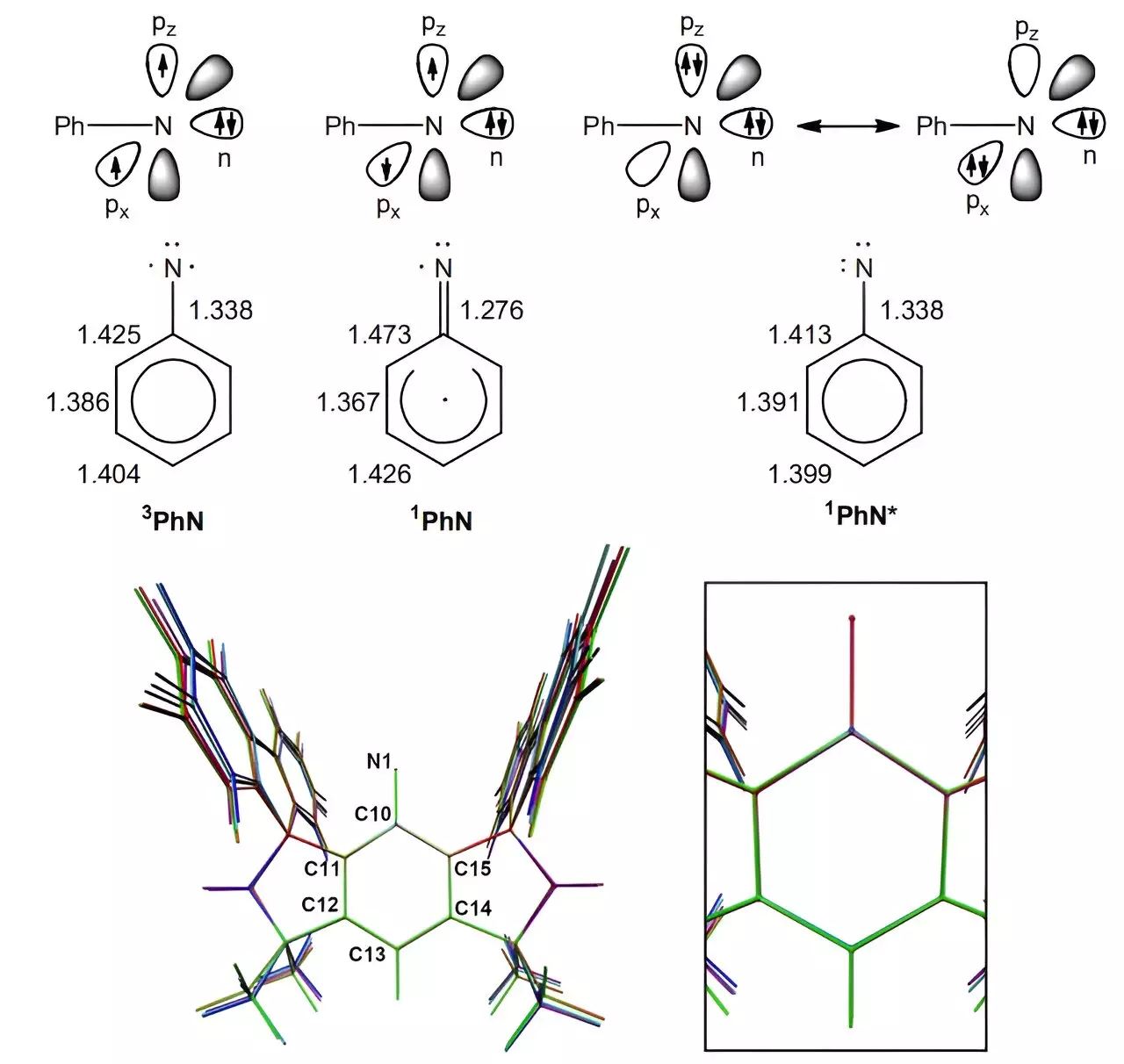Chemistry has always been a field that requires precision and innovation. A recent study conducted by a team of chemists at the University of Bremen in Germany has opened up a world of possibilities by developing a new type of nitrene with slow-reacting capabilities. This breakthrough, published in the prestigious journal Science, could revolutionize the way we approach chemical reactions.
Nitrenes, which are reactive intermediates similar to carbenes, have posed a challenge for chemists due to their extremely short reaction times, often measured in nanoseconds. This limitation has hindered their use in various commercial applications, prompting researchers to find a solution that would allow for longer reaction times.
In their study, the team of chemists employed a unique chemical scaffolding known as MSFluind to slow down nitrene reactions significantly. By utilizing this scaffolding, they were able to separate the components in a reaction from accessing the nitrogen atom, resulting in a much slower process. This novel approach paved the way for the synthesis of a slow-reacting nitrene that could persist for up to three days, a remarkable achievement in the world of chemistry.
To confirm the efficacy of their new technique, the researchers employed a series of advanced imaging techniques such as X-ray crystallography, electron paramagnetic resonance spectroscopy, and superconducting quantum interference device magnetometry. These techniques revealed essential characteristics of the newly synthesized nitrene, showcasing its spin-triplet ground state and extended lifespan.
The development of slow-reacting nitrenes opens up a wide range of possibilities in the field of chemistry. With the ability to synthesize new transition metal complexes, this breakthrough could lead to innovations in various industrial processes and the creation of novel materials with unique properties. Additionally, the newfound stability of nitrenes could pave the way for the development of advanced chemical reactions with long-lasting effects.
The discovery of slow-reacting nitrenes by the team of chemists at the University of Bremen marks a significant milestone in the field of chemistry. By overcoming the limitations of traditional nitrenes, this breakthrough has the potential to revolutionize chemical reactions and open up new avenues for research and innovation. The development of slow-reacting nitrenes is a testament to the power of scientific exploration and the endless possibilities that await in the world of chemistry.


Leave a Reply